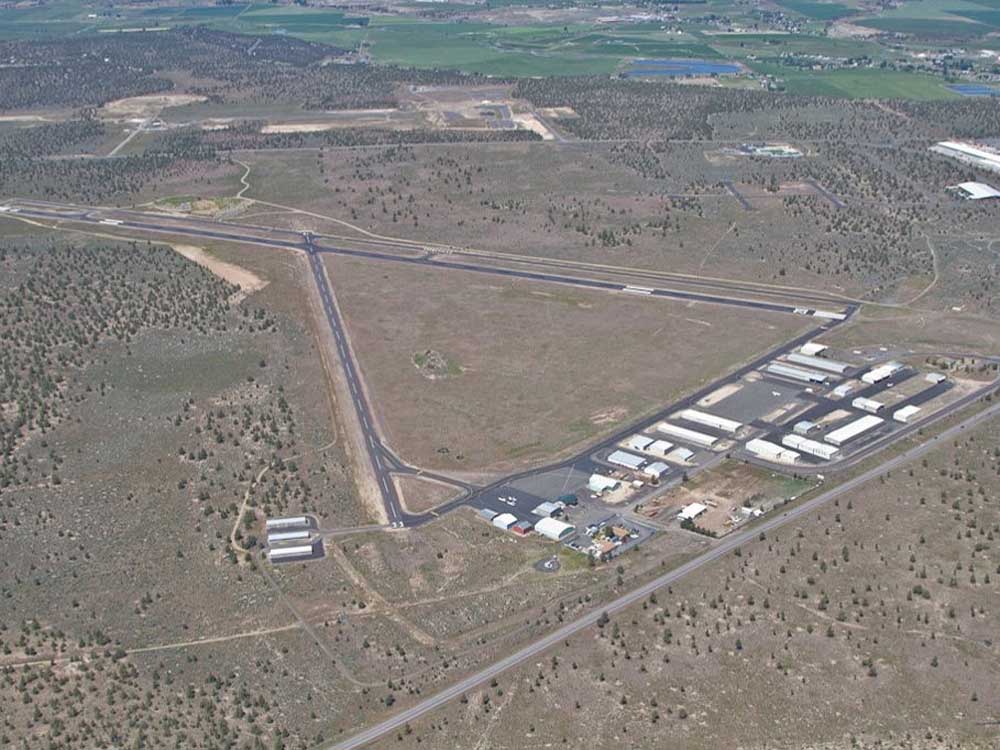Sheriff drops dishonesty finding in deputy misconduct case
Published 3:35 pm Friday, May 30, 2025

- Deschutes County Sheriff's Deputy Ryan McNee and his police dog, Rico. (submitted photo)
More than a year ago, Deschutes County Sheriff’s Deputy Ryan McNee’s police dog bit a suspect during an arrest. He filed his report and moved on, until questions started to come up about the accuracy of that account.
The internal investigation by the Deschutes County Sheriff’s Office found McNee’s actions on March 3, 2024 to be problematic on several fronts, including that McNee falsified his report, used excessive force, failed to turn on his body-worn camera and did not make the proper announcements that he was about to release a police dog.
But just six days after Sheriff Kent Van der Kamp took office on Jan. 1, McNee’s situation changed.
Instead of upholding the findings of the investigation that was completed in October, van der Kamp overturned the determination that McNee falsified his report. The new sheriff also omitted altogether the use of force violations sustained in the internal investigation from his disciplinary findings against McNee, an issue he told The Bulletin he was unaware of and would look into.
As a result, McNee was put on a one-year probation, removed from the Deschutes County Sheriff’s Office police dog program, ordered to attend a use-of-force training and docked two days pay.
Accusations of dishonesty are generally considered career-ending in law enforcement, something van der Kamp has personal experience combating. Last month a report released by the Deschutes County District Attorney’s office revealed the sheriff lied under oath on several occasions while testifying in criminal cases, leading Oregon’s Police Policy Committee to recommend van der Kamp permanently lose his law enforcement credentials. While van der Kamp says he still plans to fight that recommendation, he also plans to retire.
What did and didn’t McNee do?
On March 3, 2024 Oregon State Police became involved in a high-speed pursuit of a vehicle that was caught speeding at more than 130 miles per hour through Madras. The chase proceeded toward Prineville. Crook, Jefferson and Deschutes County sheriff’s deputies were called in to assist, including McNee and his police dog, Rico.
When officers located the vehicle, they found it empty and began to search for the occupants. The three suspects were located shortly thereafter hiding inside a barn along NW Campbell Ranch Road.
According to McNee’s report, he arrived at the barn in a patrol vehicle and moved behind the car for cover while he made the required announcement that he was about to release a police dog. McNee then moved toward the barn and released Rico before entering the threshold. However, body-worn camera footage from other officers shows that is not what actually happened.
“McNee appears unconcerned about any safety issues and he does not pause, does not put on his ballistic helmet and walked straight to the barn without hesitation or pause. McNee released his dog after he broke the threshold of the barn…Again, no force announcements or K9 announcements were given and no chance to comply was afforded to the suspects and no chance for innocent bystanders to announce themselves was given prior to the K9 being released,” the report states.
While the lack of announcement itself constitutes excessive use of force, investigator Sgt. Blair Barkhurst wrote, that violation pertains to the agency’s police dog policy. Barkhurst separately found McNee violated the Deschutes County Sheriff’s Office use of force policy by deploying Rico without first considering less forceful alternatives, and again when he failed to justify his use of force in his report.
Was McNee intentionally dishonest?
Although van der Kamp could not elaborate further on his decision to overturn the dishonesty finding because of separate, active litigation against McNee for using excessive force during a traffic stop in January, 2024, he said it was a collaborative decision between attorneys, human resources and command staff.
However, the report written by Barkhurst brings in several pieces of evidence that McNee was intentionally dishonest. Besides the factual inaccuracies, he lists the complete omission of some facts and that McNee never qualified in his report that he might not remember facts accurately. An additional factor considered by Barkhurst is the timing of when the report was written.
“Deputy McNee claimed (during our interview that) fatigue the night of the call might have caused errors in his report, however, his case report was not created and submitted until the first day shift of his following workweek after he received backlash at a K9 training briefing for his actions on the call,” Barkhurst wrote.
District Attorney Steve Gunnels told The Bulletin his office also conducted a review of McNee to determine if McNee too should be barred from giving future testimony — otherwise known as being placed on the Brady List. Gunnels’ findings mirrored van der Kamp’s decision not to sustain the finding of dishonesty.
“In short, I do not find that Deputy McNee was intentionally misleading in his written statements and he will not be placed on our Brady list. Specifically, I believe the errors in his written statements were the result of mistaken assumptions or sloppiness and thus do not merit a Brady listing,” Gunnels said.
‘A common theme of poor decision making’
Aside from overturning the dishonesty finding and omitting the use of force findings, van der Kamp upheld the remainder of Barkhurst’s findings.
“All the investigations showed a common theme of poor decision making,” van der Kamp wrote in McNee’s disciplinary letter on Jan. 6. “I have considered your statements regarding having an untreated medical condition and that DA Gunnels affirmed your work product has been free of errors, thorough and complete.”
McNee has been involved in three separate internal investigations that resulted in two oral reprimands and one written reprimand. He also is involved in an active civil lawsuit in which Redmond resident Kacie Degenais accuses McNee of using excessive force and physically assaulting her during a traffic stop.
With all those factors in consideration, van der Kamp issued McNee a last chance agreement “in lieu of issuing more severe discipline or terminating his employment. The agreement effectively places McNee on probation until May 19, 2026. During that time, McNee must not violate any laws or Deschutes County Sheriff’s Office policy at the risk of being fired; he must also refrain from retaliating against anyone involved in the dog bite incident and must comply at all times with policy relating to turning on his body-worn camera.
McNee was placed on paid administrative leave for this incident on Sept. 25, 2024 and returned to work on April 4, 2025. Between Oct. 17, 2024 and Jan. 7, 2025, McNee took paid Family and Medical Leave. While on paid administrative leave McNee earned $31,619. His annual salary is $120,312 excluding overtime.






